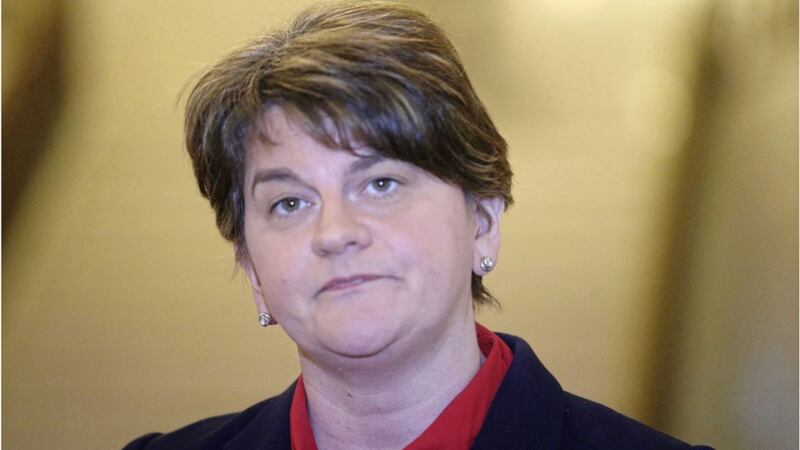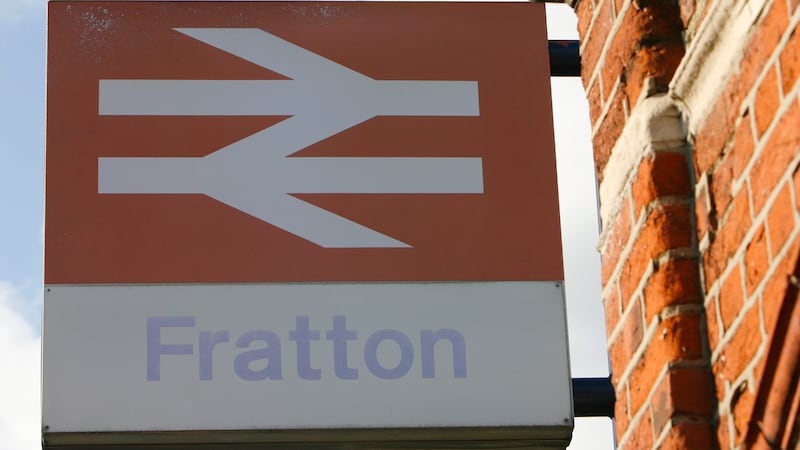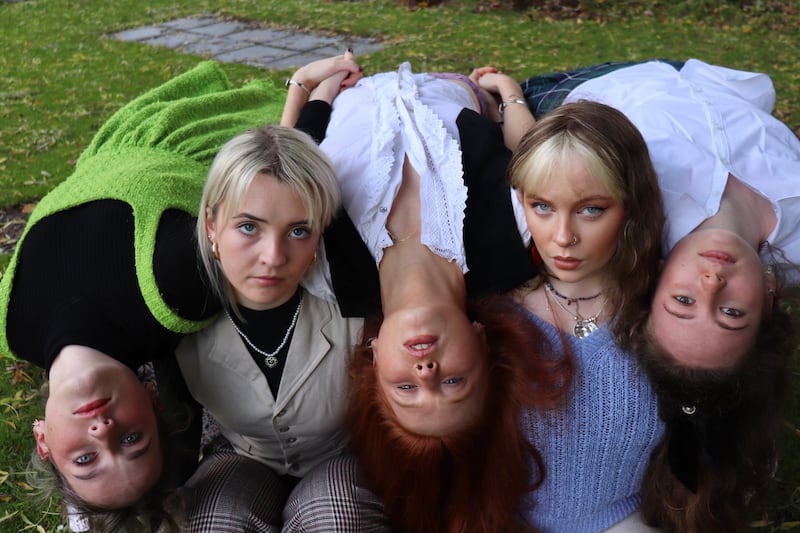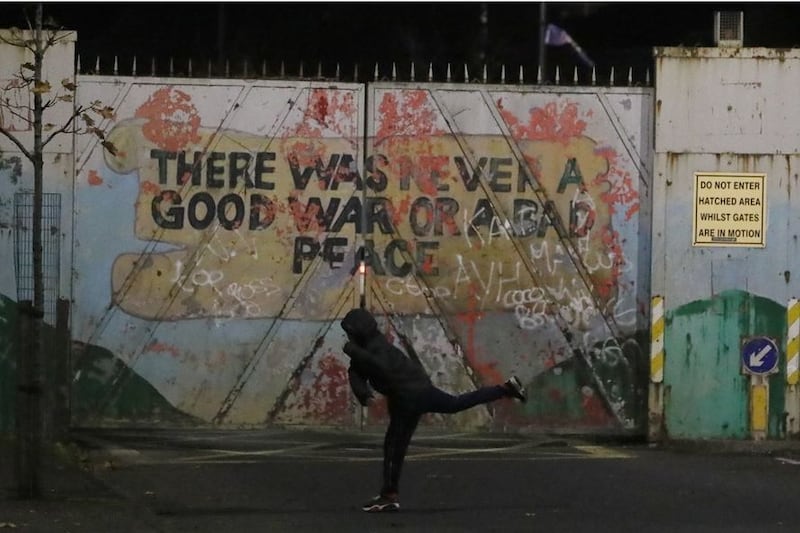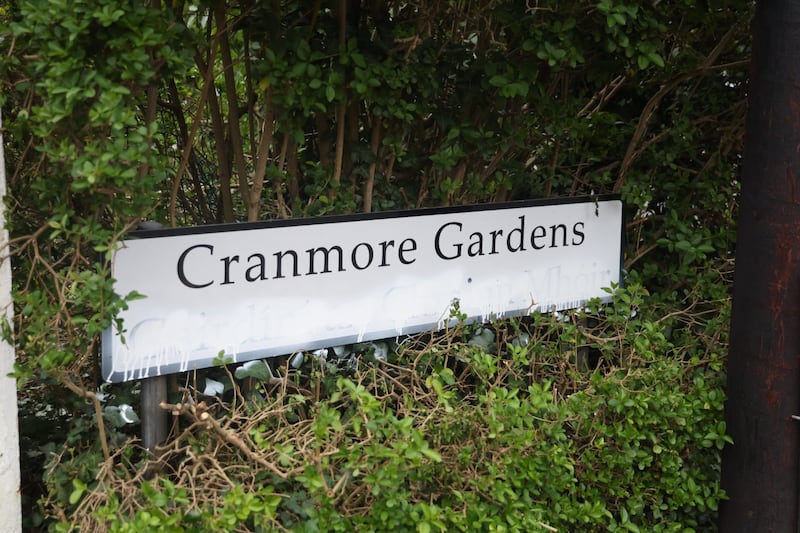ARLENE Foster's pledge to meet Irish language speakers to gain a better understanding of the culture was welcomed yesterday although it remains unclear when meetings will take place.
The DUP leader and former Stormont first minister said she wanted to engage with Gaelic speakers who lack party political baggage
As the talks aimed at resolving the political impasse broke up for the Easter holidays on Wednesday, the DUP leader outlined her intention to meet with Irish speakers "over the next short period of time" to "respect and better understand" the language and culture.
Mrs Foster said: "I do intend to listen and to engage with those from the Gaelic/Irish background, those without party political baggage or indeed demands, people who genuinely love the Irish language and don’t want to use it as a political weapon."
An Irish language act is one of the outstanding issues to any deal to restore devolution, with language campaigners urging Sinn Féin not to return to Stormont without the legislation.
Several Irish language organisations welcomed the former First Minister's remarks yesterday and looked forward to a possible meeting, although none had yet received an approach from the DUP.
However the DUP has not said who Mrs Foster or senior party members will meet and when.
A spokesman last night said: "We are currently in the process of arranging meetings with Irish language groups and will continue engagement with these groups after the Easter period."
A number of Irish language group last night said they had already contacted the DUP to arrange meetings.
Dr Niall Comer, the President of Irish language campaign group Conradh na Gaeilge, said: "We have written to Ms Foster formally requesting that meeting.
"Conradh na Gaeilge would like to provide Ms Foster with a better understanding about the language, the community, and our proposals for legislation as we have discussed with various other parties at this stage."
Janet Muller, the director of advocacy group Pobal, said it had also written to Mrs Foster seeking a meeting.
She said: "Some may say that this recognition from Arlene Foster that she needs to engage with Irish speakers has come rather late in the day, given that it is ten years since the St Andrews commitment to legislate for the language, but POBAL has always been happy to engage with all."
The move was also welcomed at the Falls Road Cultúrlann in west Belfast where a spokesman said: "We are an independent organisation here to promote the Irish language through the arts and our doors are open to everyone."
The former Victims' Commissioner, Patricia MacBride, tweeted: "As trustee of Gaelscoil na Spéiriní, I invite @DUPleader to visit us and learn how we've grown tenfold in 10 years."
However, Jake Mac Siacais from Forbairt Feirste asked Mrs Foster to respond to an invite issued more than a year ago.
He tweeted: "Arlene I wrote you a letter of congratulations on your elevation to leadership inviting you to visit Gaeltacht Quarter. RSVP."
Mrs Foster's overture to Irish speakers marks a change in tone from February, when the DUP leader dismissed the prospect of an Irish language act, stating: "If you feed a crocodile, it will keep coming back for more."
However, she later expressed regret for the remarks, telling The Impartial Reporter: "The crocodile comment was in relation to Sinn Féin and not in relation to the Irish Language Act."
South Belfast Sinn Féin MLA Máirtín Ó Muilleoir described the former First Minister's comments as "positive".
"Anything which encourages dialogue, which encourages conversation, which encourages increased understanding of our shared heritage, has to be positive," he said.
